Freon leaks can happen with any kind of cooling system. So, if you suspect a freon leak in your home, it's important to take care of it quickly because there are some risks that go with it. We've researched what will happen if freon leaks inside your home, and here's what we found out.
A freon leak in the house is dangerous to health, so it needs to be addressed immediately. With prolonged exposure, you could experience symptoms such as headache, eye irritation, breathing difficulties, vomiting, and coughing. But unless you inhaled large quantities, it won't be lethal.
Do you want to know more about what will happen if you inhale freon? Read on, and we'll talk about the symptoms you should watch out for and the common signs to help you determine if your cooling systems are leaking freon.
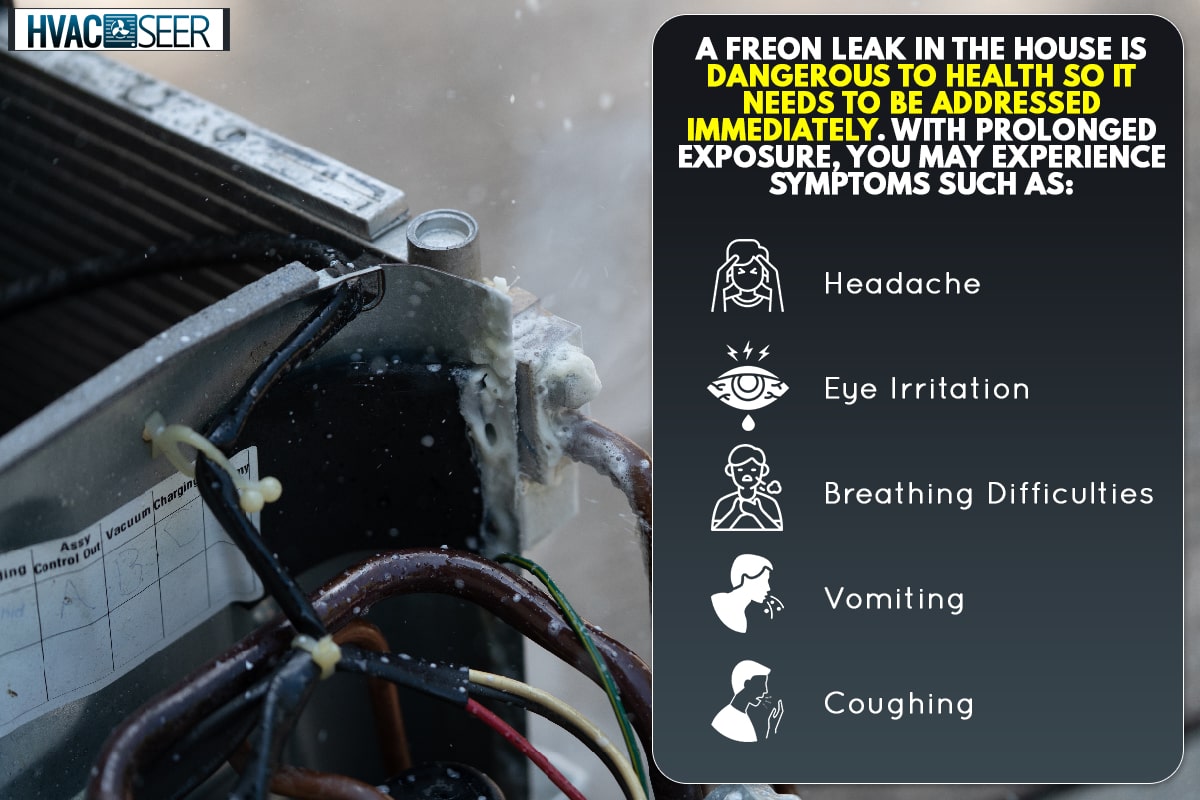
What Happens If Freon Leaks In Your House?
Freon is a refrigerant used in air conditioning (AC) units and other cooling systems like freezers and refrigerators. One of the worst things that can go wrong in your home is if one of these cooling units has a freon leak. If the freon spreads over time without your knowledge, it can cause serious damage to your health and home.
Mild Exposure
Mild exposure to freon leak is considered harmless, but the person exposed can still show symptoms of mild poisoning, which include:
- headache
- difficulty breathing
- coughing
- dizziness
- nausea
- vomiting
- skin irritation (or burn caused by direct exposure)
A refrigerant leak from an air conditioning unit or other home cooling systems is considered a minor case. However, it can still cause mild symptoms, especially if the leak is entrapped in a closed area and the people living in the house have repeated exposure to it.
Major exposure
An example of a major effect of a refrigerant leak would be this case report from the National Library of Medicine. It was a case of three people who accidentally inhaled freon gas caused by a leak in a ship's air conditioning system. The victims were in an unventilated area, causing them to lose consciousness after about 5 to 10 minutes of exposure.
Some of the major symptoms they exhibit include:
- loss of consciousness
- confusion
- headache
- complete loss of sensation
- lockjaw
- temporary comatose
Given these scenarios, it can give you a clear picture of how dangerous freon can be with prolonged exposure. If you suspect a freon leak in your cooling system, seek the help of HVAC experts. If you don't take care of the problem soon enough, aside from the health risks, you could end up having to replace parts of the system altogether.
How Do You Check For Freon Leak?
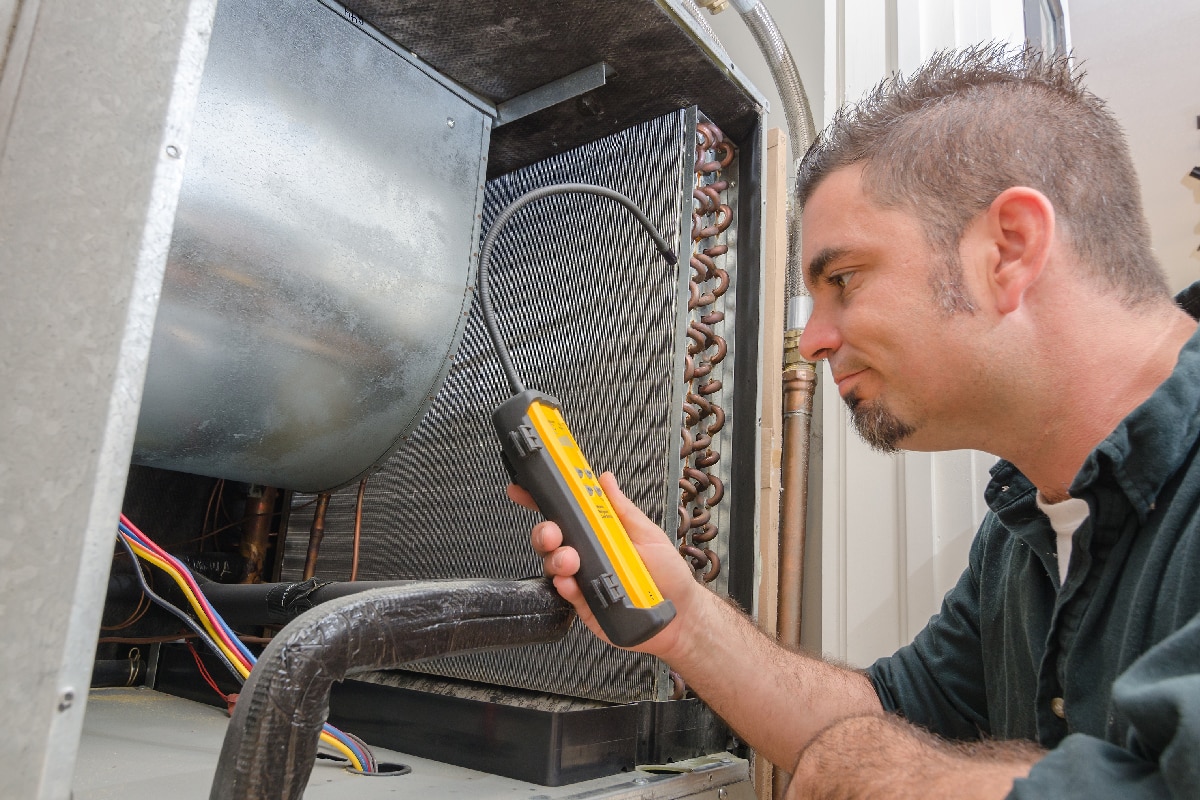
A freon leak is not something you can see; that's why it can be difficult to detect. However, as a homeowner, there are certain things you can do to check.
The signs are often clear, and you just need to be observant about your unit's performance. For air conditioners, the most common signs of a possible freon leak include:
- A strange smell coming from the AC unit
- Ice forming in the evaporator coils and other parts of the unit
- Decrease in cooling performance of the AC unit
- Increased electricity bill because you're using more energy than usual to maintain a cool temperature
If you have a little background on AC repairs and have the right tools, there are three ways you can try to check for refrigerant leaks.
Soapy Water Solution
Pour 2.5 ml of dish soap into a spray bottle filled with lukewarm water and spray the solution in the joints of the refrigerant lines. If it forms large bubbles in a particular spot, it means there's a freon leak in that area. If small bubbles are forming, it means the leak may be too small to be detected, and it's best to use an electronic leak detector.
Fluorescent Dye Method
A specialized fluorescent dye is injected into the system and will circulate around the refrigerant system. If there are any leaks, the dye should escape into the holes. A UV light is used to see where the leaking parts are. This method, however, is not always recommended because it can have an adverse effect on the performance of the unit in the long term.
Electronic Leak Detector
Switch on the device and run the problem along the refrigerant line. Most devices will make a low, steady beep, almost similar to a metal detector. Once it detects a leak, it will make a long and loud beep and then the device will light up. This method is the most efficient and accurate way to detect leaks and is the method of choice by many professional technicians.
Check out this Elitech halogen leak detector on Amazon.
Freon travels within a closed line of the condenser and evaporator coils. These lines are usually made of copper, and if any of them starts to crack, it can result in a refrigerant leak.
There are many reasons why the copper may crack and these include wearing out and environmental factors such as the interaction of water and volatile organic objects from outside elements.
You can view the video below on how to find a refrigerant leak using an ultrasonic leak detector.
How Long Does Freon Stay In The Air After A Leak?
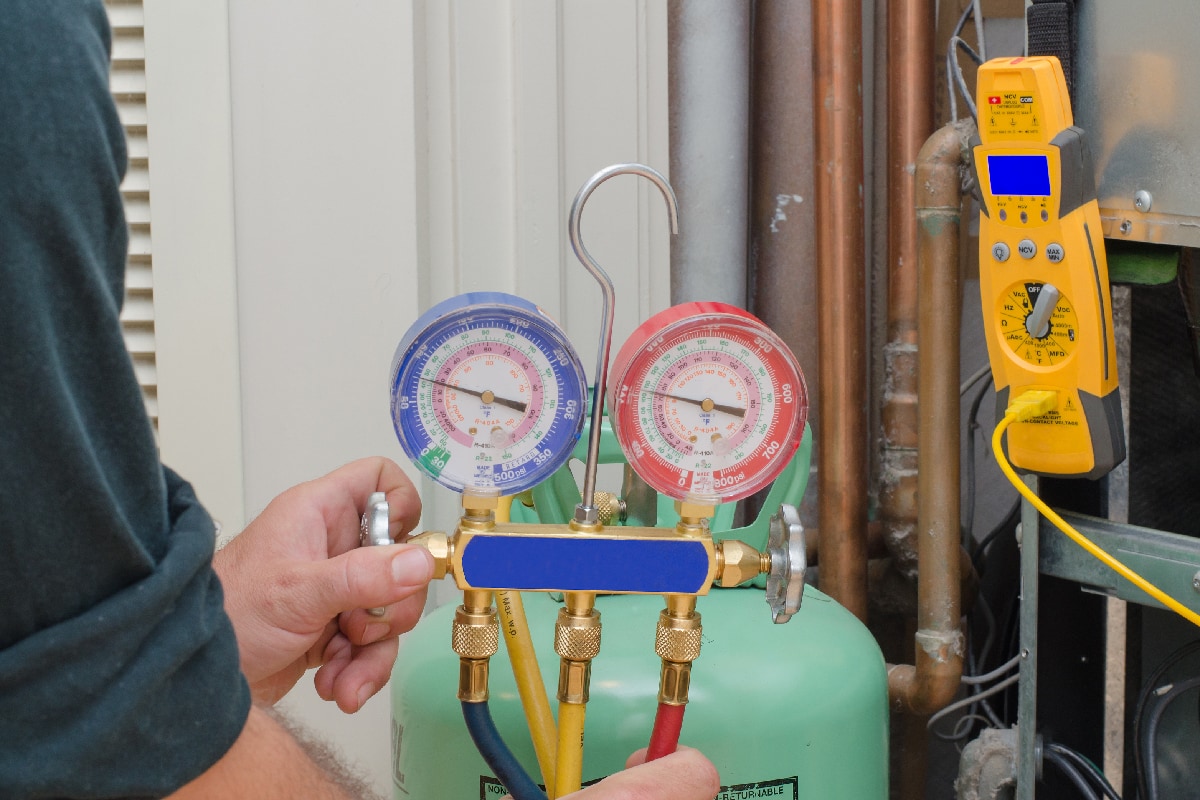
Fortunately, freon has high volatility and can rapidly disperse when it leaks. It is only dangerous when the gas is enclosed in an area with no exhaust or ventilation. But if you open the doors and windows, the freon will easily disperse within a few minutes.
If the smell of freon leak is too strong, ventilate the area, and the smell should be completely gone in 20 to 30 minutes.
If your AC unit has a leak and you're wondering how long it takes for the freon supply to leak out completely, the answer depends on how and how big the leak is and how damaged the unit has become. It can take anywhere from 30 minutes to six hours for the freon to completely leak out and dissipate.
What Do Freon Smell Like?
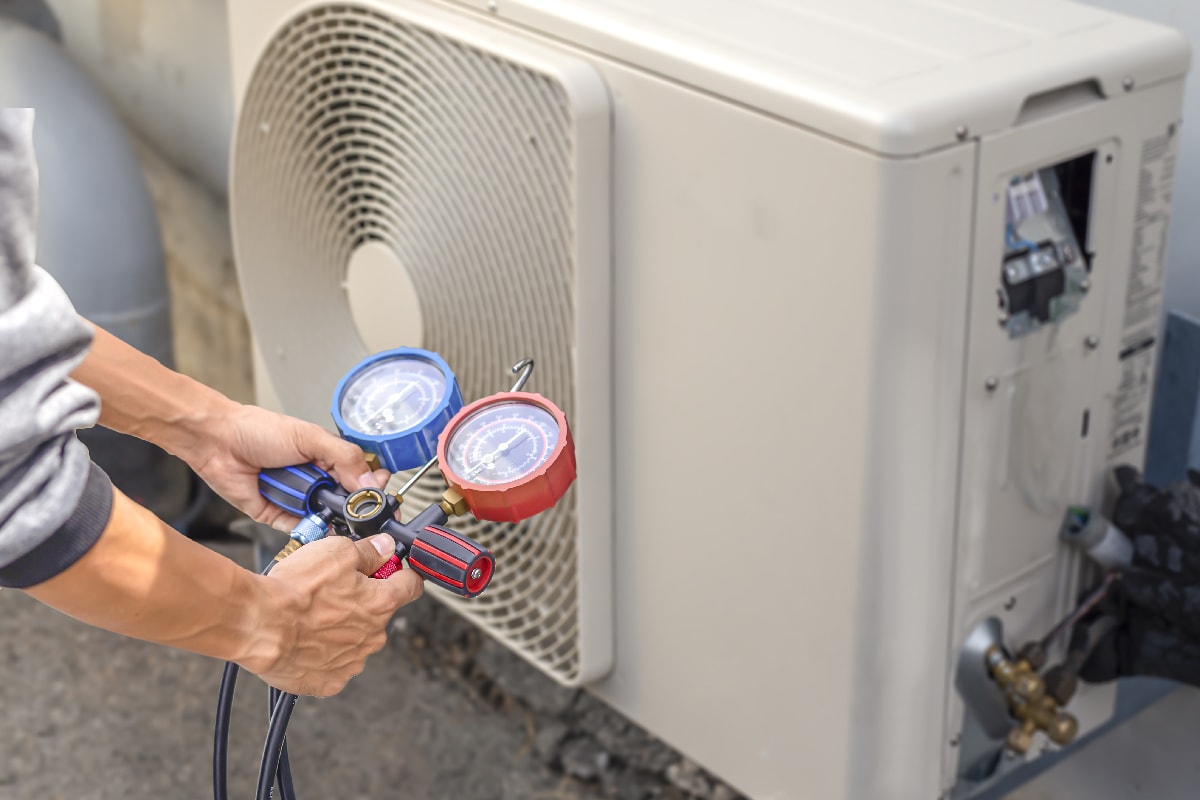
Freon has no smell or odor, that's why it can be very difficult to know if you have a refrigerant leak unless you pay attention to other signs of it in your HVAC systems. One source says that freon has a lightly sweet aroma like the coolant in a car or chloroform. Either way, the smell will be faint and difficult to detect.
The smell of freon may not be completely toxic to humans, but it can be deadly for the environment. Freon is a chlorofluorocarbon (CFC), a non-flammable and non-toxic chemical, but it can be dangerous in large quantities and is especially harmful to the environment.
CFC is a compound that many products use for solvents and aerosol sprays. However, many of these products are not on the market anymore because of the harm it poses to the ozone layer. Although it is still in use for air conditioners and other cooling systems, a refrigerant leak makes it even more harmful as it dissipates into the ozone.
How Much Does It Cost To Fix Refrigerant Leak?
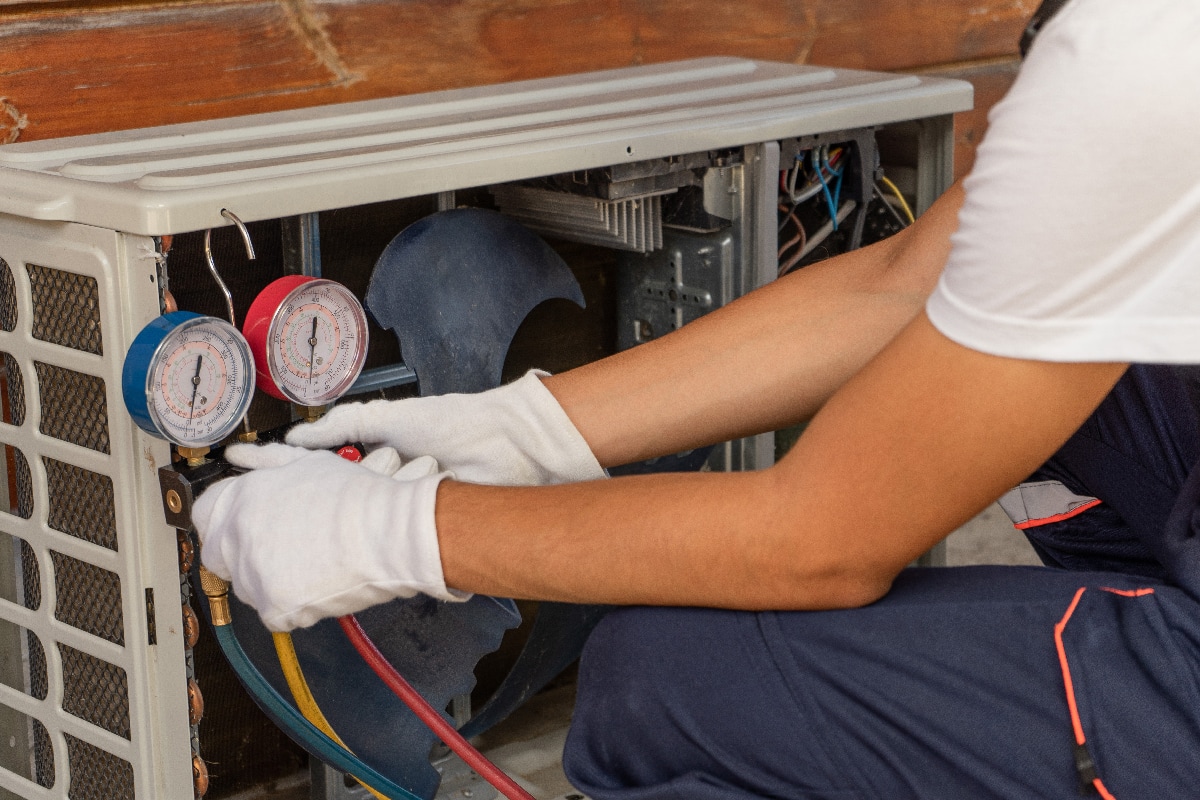
Depending on the severity of the damage, fixing a refrigerant leak may cost anywhere between a few hundred dollars to several thousand dollars. Why is there so much discrepancy in the price range? The price depends on what parts have damage.
For instance, if you just need to have the freon recharged, you can expect to spend between $160 to $375. The price will depend on your AC unit type, its capacity, and its age.
The entire package of detecting, fixing, and recharging the freon can cost anywhere between $500 to $1600 depending on factors such as your location, service fees, if there are parts that need replacement, the extent of the damage, and other unforeseen defects that might be discovered during the inspection.
Wrapping Up
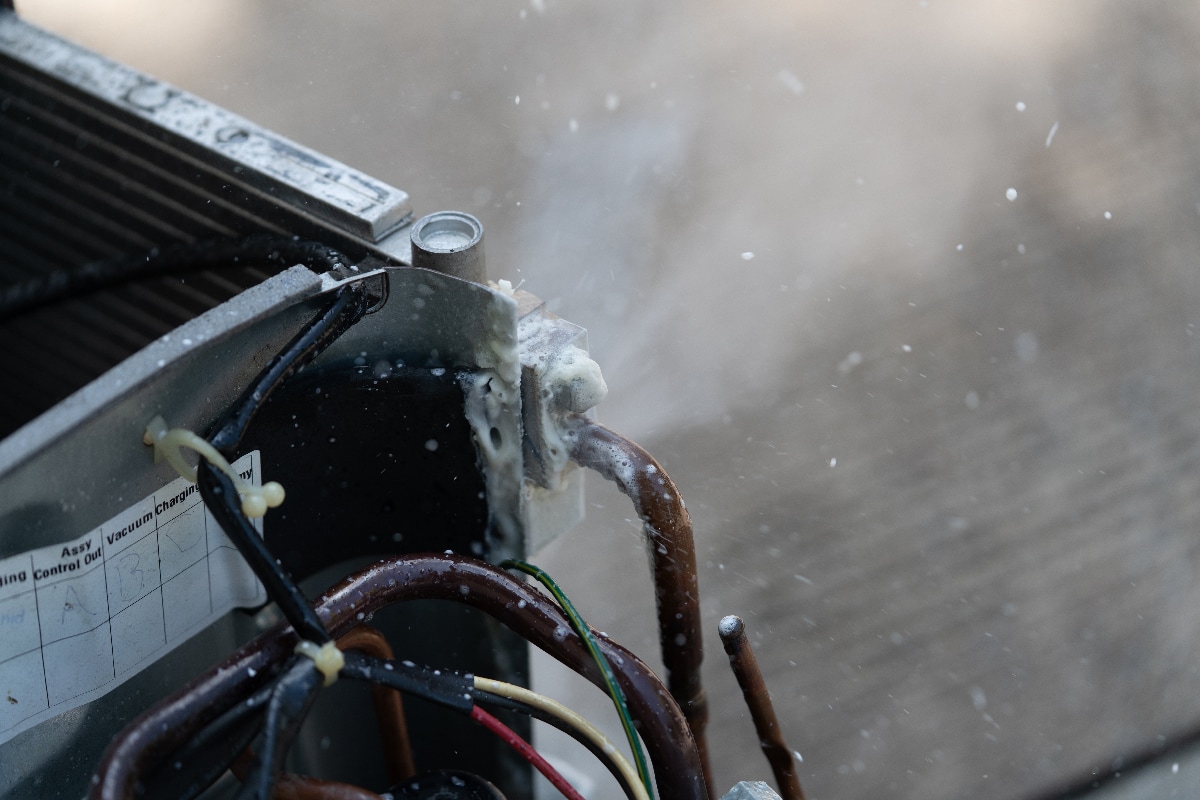
Thank you very much for reading through. We hope you were able to understand the dangers that a freon leak can pose to your family's health. If you ever experience a freon leak, it's always best to call a professional to check the problem. This is not simple DIY damage that you can fix with home tools. It requires special equipment for detection and repair.
If you need to know more about handling freon, do browse these other helpful titles below:
Adding Freon To A PTAC Unit – How To?

